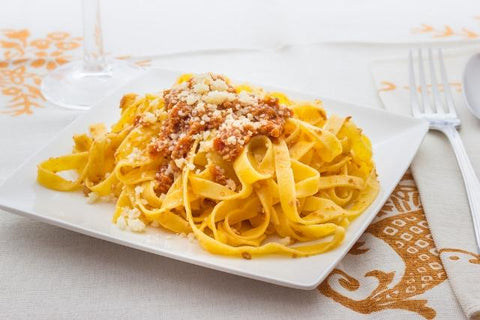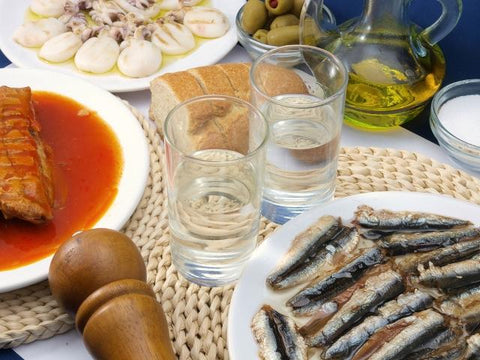The European culinary scene is ever-evolving. Many of the cities on this list might not have been considered major players in the food scene just a few years ago, which makes Europe such an exciting destination for foodies. Here are a few cities in Europe that food lovers will surely enjoy exploring.
BOLOGNABologna is famous for many things, but its market scene is high on the list. Just off of the main square of Piazza Maggiore sits the ancient food market Quadrilatero. Here you’ll find nearly anything your heart desires including fish, pasta, cured meats, baked goods, and produce. A little further away lies the Mercato delle Erbe (vegetable market) where you’ll find more locals and fewer tourists. Fill your bags with fresh, seasonal produce and then head to Osteria Del Sole, a bar that’s been running since 1465! Order up a glass of local wine and nosh on your market purchases – they let you bring your own food.
No trip to Bologna is finished without at least one plate of tagliatelle al Ragù (pasta with Bolognese meat sauce) with a hearty topping of parmesan from nearby Parm. An even more authentic dish from this robust food scene is tortellini in brodo, meat filled pasta served in a hot broth or a plate of lasagna Bolognese.
BORDEAUX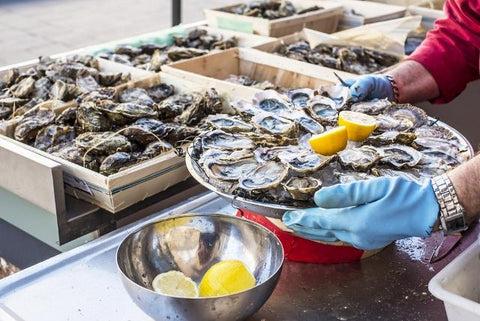
Much more than just a famous wine in France, the Bordeaux food scene offers the many classic French dishes attracting crowds to France for generations such as duck confit, and foie gras, but its ocean-adjacent location adds a seafood element to the mix. Have your fill of the area’s oysters, langoustines, mussels, shrimp, and clams right along with your steak frites and glass of bold red wine.
SAN SEBASTIAN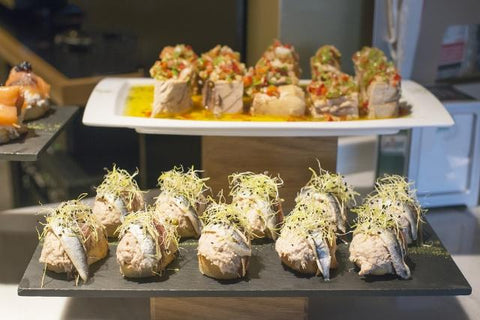
No food-centric list of Europe is complete without San Sebastian. Considered by many to be the continent’s food capital, this Spanish Basque city has the second highest concentration of Michelin stars per square mile in the world after Kyoto. Travelers come from all over the globe to take vacations designed around dining in San Sebastian. Known for its pintxos restaurants, the Basque-equivalent of tapas or small plates are found primarily in the old quarter of the city. Don’t forget to throw your napkins on the floor when you’re done, though! It is a tradition and the dirtier the pintxos bar, the better it is.
The city’s molecular gastronomy has caused quite a stir among food enthusiasts in recent years. San Sebastian restaurants like Arzak and Mugaritz serve dishes that play with the physical forms of the ingredients they are comprised of. Each patron receives edible art, ensuring a thought-provoking dining experience.
When you’ve had your fill of being served, try a Basque cooking class at the hotel Maria Cristina followed by a night cap of txacoli, the region’s dry, sparkling white wine.
THESSALONIKIGreece’s second largest city is second to none when it comes to dining. Known as the country’s culinary capital, part of Thessaloniki’s success lies within its proximity to fertile land producing top notch produce including olives, grapes, beans, and grain. Quality ingredients are of the utmost importance when your gastronomic scene is known for its simple, straightforward cuisine in the city’s many mezedopola, casual eateries serving small plates (meze) to accompany alcoholic drinks. There are many nearby wineries producing excellent varietals to pair with your meze, or sip on ouzo, retsina (resinated wine), or tsipouro (pomace brandy) if you prefer.
PARIS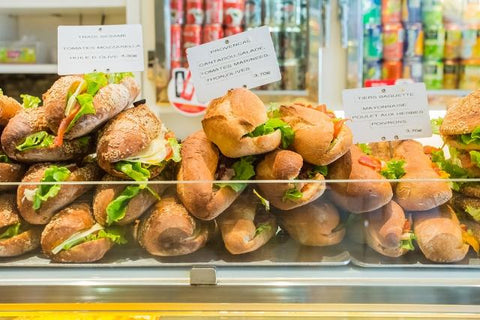
Even if you’ve been to Paris a dozen times, you can always find another brasserie, patisserie, or boulangerie to explore. If you’re looking to dine in a Parisian institution however, Benoit is an excellent choice. The only Parisian bistro to receive a Michelin star, this restaurant dates back to 1912. Experience classics like pâté, escargots, and boeuf bordelaise.
If you want to encounter the more contemporary direction of Parisian gastronomy you may be interested in the Korean fried chicken at Hero, or the upscale-but-not-stuffy Franco-Chinois cuisine of Yam’Tcha.
When the multitudes of dining options overwhelm you, why not pack a gourmet picnic in the park? Stop into Claus, a beloved Parisian gourmet grocery and cafe on rue Jean-Jacques Rousseau, then make your way over to the gardens at the Palais Royal for an open air brunch.
ROME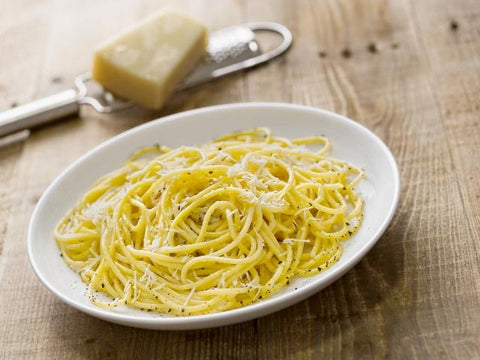
A foodie’s trip to Rome is akin to a pilgrimage to Mecca. Among all the grandeur and ancient architecture of the city lie restaurants combining simple fresh ingredients into dishes that far surpass the sum of their parts. Nowhere is this more evident than with the classic Roman dish, Cacio e pepe. Translating to ‘cheese and pepper’ the dish is made solely with black pepper, Pecorino Romano cheese, and pasta (usually spaghetti). A certain gastronomic alchemy takes over when the ingredients are combined to create a dish that has been consumed since ancient times.
Another distinctive quality of Roman food is their adept ability to use the ‘poor man’s’ ingredients known as the fifth quarter, or quinto quarto. These are the offal of animals that are often thrown away elsewhere including the tongue, tripe, brain, and liver. If you’re an adventurous eater you’ll be in dining heaven and if you’re a picky eater why not say ‘when in Rome!’ and expand your horizons with quinto quarto.
Pin it and start planning your next foodie adventure!
This blogpost is courtesy of Mark's Travel Journal. To read the full article 11 European cities for foodies, click here.
If you enjoyed this blog post, you might also be interested in Turkish hammam experience is one of a kind.

